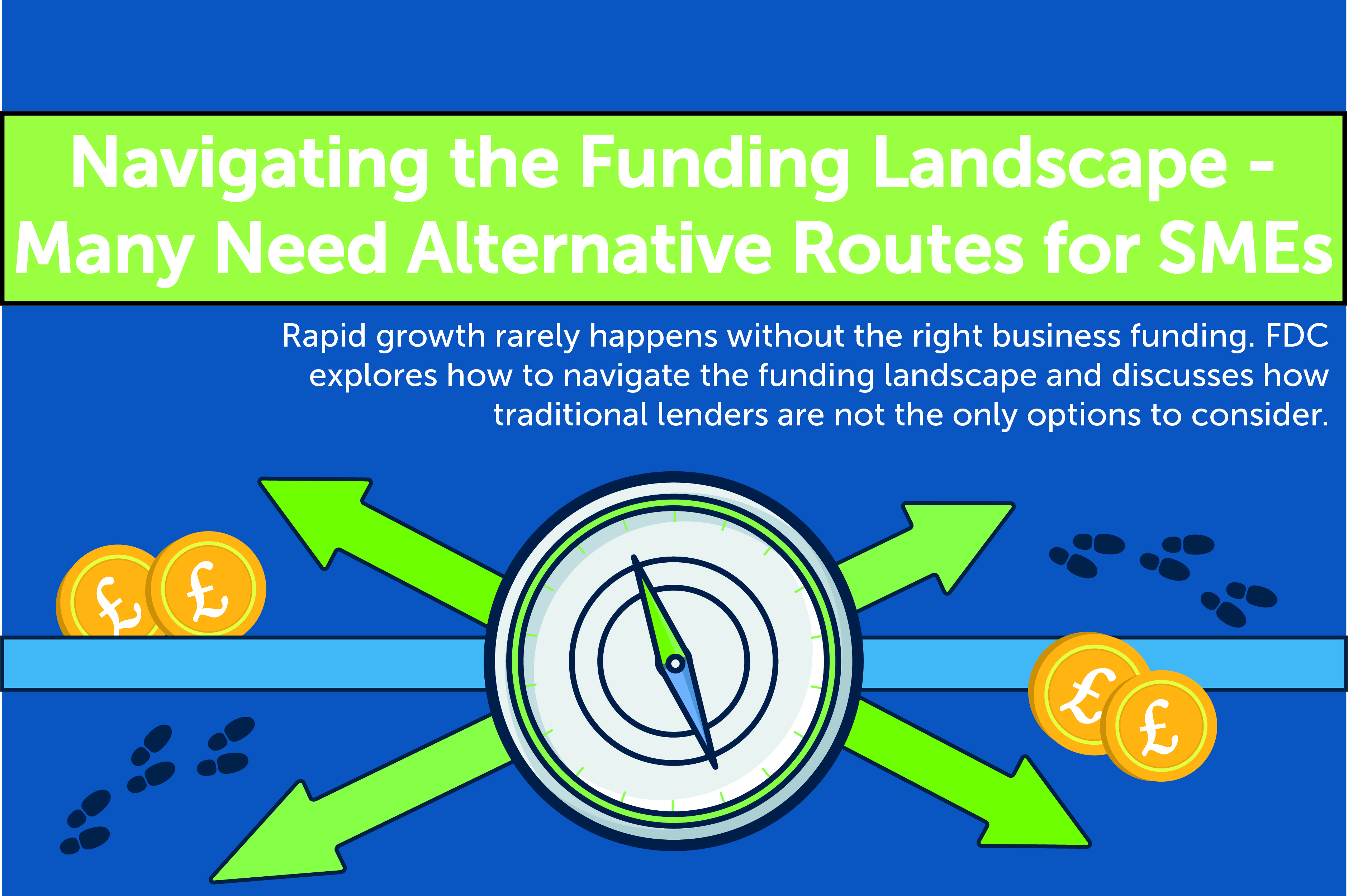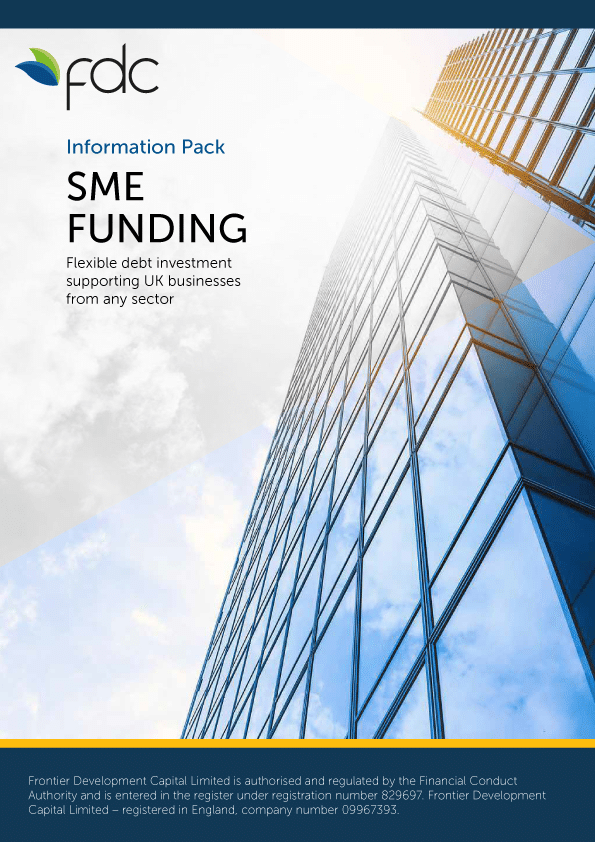With many businesses now at the tail end of the pandemic storm, it is predicted that the UK economy will begin to grow rapidly. Businesses will want to keep pace and there will be significant demand for external investment to support growth plans over the next 12 months.
However, as government schemes like CBILS and BBLS draw to a close and traditional bank lenders remain more risk averse, the first step for an SME’s financing journey is understanding the types of investment available and how alternative providers are also viable options.
Lack of Time & Funding Expertise
According to the British Business Bank’s latest ‘Small Business Finance Markets’ report, SME businesses have increasingly become self-reliant when considering external finance, with 75% of businesses only considering one provider in 2020, primarily bank lending.
The alternative funding landscape has grown exponentially in recent years with a plethora of equity and lending products for every possible business requirement. Many SME decision makers lack the time and specialist financial expertise to research the wide array of non-traditional funding options available to them, and more importantly, to successfully secure the capital they’re seeking.
With limited time to consider the complicated and over-crowded financial marketplace, often businesses do not have the knowledge of where to begin so lean towards what they already know.
Steering Attitudes & Understanding Alternatives
But the business leaders that do invest time in exploring alternative providers go on to develop long-lasting investment relationships, accessing an otherwise overlooked resource that can be instrumental in achieving growth plans. This is especially the case if traditional bank lending is not an option nor appropriate for the business.
Having the right finance provider can have positive influences on the business performance, with an alternative funder taking a holistic view on a business’ situation and providing ‘more than money’. They can often give the clarity a business needs by advising on management concerns and support a business to achieve core goals. This is especially the case if the funder has experience of supporting similar businesses going through a cycle of growth and development.
Alternative Routes bring Flexibility
There isn’t one route that suits all when it comes to assessing the right funding options; there are many twists and forks in the road depending on sector, business model, speed of growth and strategy.
However, alternative funders can bridge the gap between cautious banks and more profitable businesses able to fund their own growth plans.
Alternative funders, like Frontier Development Capital (FDC), offer the flexibility businesses need in uncertain economic times. Dealing with businesses on a case-by-case basis, they understand that no two business strategies are alike. By following non-algorithmic processes, alternative investment terms can be flexed to suit a business’ needs rather than defaulting to a ‘computer says no’ response.
Amid the growing assortment of innovative financial solutions to choose from, there are often options to structure funding differently to the ‘one-dimensional’ approach typically associated with traditional bank lending.
Therefore, it is essential that business owners take the time to talk to trusted advisors and broaden considerations, as alternative funders can offer a more flexible and understanding approach compared to traditional lenders.
Investment is essential for seizing business opportunities at a time when other businesses will be looking to do the same and expand, so it is a competitive advantage to start and maintain such a dialogue with both corporate finance advisors and funding providers.
Unprecedented Roadblocks
2020 was an unexpected and incredibly trying year, where business plans were turned upside down. With supply issues, demand issues, production and staffing issues to name a few – there was no way of forecasting for 2020, causing a deep impact on business trading performance.
However, businesses should not worry too much at this impact. Alternative funders understand that the last 12-month period was an unusual one for business performance.
They can make adjustments for turbulent times and accept 2020 was not a normal trading year. They have a greater understanding of and take a holistic look at businesses, considering a business’ situation pre-pandemic.
When discussing investment with alternative lenders the ‘Covid’ account blip is an accepted hiccup in business continuity. What is of most importance is the flexibility and development of that SME’s future business plan.
What do businesses need to consider when exploring the alternative finance landscape?
First and foremost a business should weigh up the cost of finance compared with overall gain. Traditional bank lending is cheaper than alternative funding. However, if bank lending is not suitable nor flexible enough to suit the needs of a business’ growth strategy, all is not lost.
By speaking to trusted advisors, accountants or researching regional alternative funders, a business can narrow down the list of investors. A simple conversation regarding fund availability, and the process of investment will help to foster supportive investor relationships from the start. And even if an alternative funder is not suitable for a business at that time, they will be able to offer advice and signpost businesses to a better path.
A business needs to establish the journey it wishes to take and plot crucial points along the way. Every business is unique and a good alternative funder will help to determine the type of finance required, term length and suitable repayment structure which in turn will support the best approach to growth.
Whether debt, mezzanine or equity finance, business confidence is key if any investor is to commit capital. Especially in uncertain times, investors need to see a robust strategy, strong track record and a capable management team. Though the impact of the pandemic will have affected many businesses, stating clearly how a business operated before the pandemic as well as during will help alternative funders take a holistic view and advise which funds are most suitable.
Sue Summers, CEO of FDC comments: “Sourcing the right funding and investment partner can be a challenging process but one that can be a primary catalyst that enables growth and expansion.
"FDC has always strived to work alongside ambitious management teams in order to provide flexible debt solutions that support business models when traditional lending isn’t an option, bridging the funding gaps businesses often encounter.”



